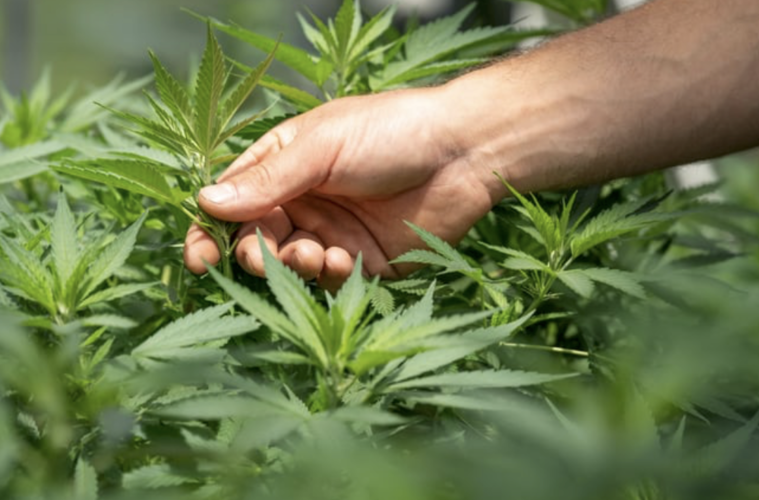While the Delta 8 industry came in hot and heavy after its legalization in 2018, its success may have been short lived. Not because there is something wrong with the product but because of the economic situation that weighed down the buyers and sellers across the states.
As the pandemic continues, many hemp producers are struggling to survive in the economy. While a couple new companies enter the market every month, several quit the industry altogether. The decline in purchases of hemp and cannabis has led many sellers to filefor bankruptcy. Experts say that 1kg of CBD oil that would’ve cost around $70,000 in 2014, is now worth a mere $750.
To further amplify the diminishing status of these companies, Covid-19 has led to massive unexpected devaluation. It has also been found that impacts are mostly experienced by vertically integrated firms. Since the Coronavirus has led to the closure of many retail stores, many sellers are finding it hard to make ends meet. In addition, the restrictions surrounding CBD and Delta 8 are so unclear and vague that companies are now struggling to figure out whether or not they can advertise their products on popular social media platforms. As many sectors within different industries have taken their business online, hemp producers still find themselves in limbo, trying to figure out if these marketing tactics might land them with criminal charges.
In addition to this, many new investors have been put off the idea of wanting to invest in a declining industry. To make the existing situation worse, the legal requirements and paperwork are too extensive for some to want to carry the burden. This further puts a strain on existing producers who can no longer obtain sufficient capital to run their businesses.
Although legalized, the government still puts plenty of restrictions on the growth and sales of hemp. Though CBD, that is sold legally, is either obtained from the marijuana or hemp plant, specifically for topical or oral use as well as an additive to drinks and food. Many believe there shouldn’t be such harsh restrictions set in place to begin with. In fact, some CBD brands had also hoped that in 2020 the FDA would provide guidelines and rules especially considering products used as dietary supplements but that didn’t go as planned either. Instead, the FDA dedicated much of its time, and rightfully so, to providing resources towards the ongoing pandemic.
Nevertheless, the penalties for even making the slightest of errors are so harsh that it has discouraged private firms from trying to make room for themselves in such a market. The market now hosts more public companies than ever before. As of March 2020, the percentage of acquisitions by public companies increased from 65% to 95%. As bigger names join the industry, it only makes sense why the smaller ones decided to make a clean exit. The market is overcrowded by large investors and naturally, this has caused prices to take a plunge. As bigger firms manage to take the blow, small companies are not in favor of taking any such risks.
Furthermore, as brick and mortar come to a halt, small sellers who used local events to showcase their products now lose out on the opportunity to do so. Farmer markets and trade expos have come to a steady halt and there is no knowing when the postponed events will take place again. Not only does this contribute to losing potential buyers but also in losing potential investors that are crucial to make the business take off. Companies like Charlottes Web and Medterra who have established themselves in the industry have long standing relationships with retailers who are loyal to them. This allows them to start new product lines and actually have shelves available at retailers to stock their products. For smaller business, opportunities such as this seem bleak.
According to reports, companies that are likely to survive this pandemic are the ones that are already well-known, have a strong social media presence, have a direct-to-consumer relationship with their clients through their websites and ones that have a sufficiently strong marketing scheme.
However, it is important to highlight that many of the challenges being faced today are by smaller companies who entered the market a little later or with low investments. Experts suggest that in order to make a living solely through the CBD industry, one must have at least about $6 million to successfully get the business off the ground. The problem with the Coronavirus hasn’t really been regarding the purchases but rather about brand loyalties and who customers turn to when in need. As many consumers across the country are in lockdown, they prefer to shop online. If anything, consumer spending on CBD products has increased during the pandemic and it has also been found, that there has been an increase in the number of people who now consumer CBD regularly. With so many options to choose from, CBD consumers are buying products ranging from gummies to edibles and plenty more.
Now that we know that consumption levels haven’t been as severely affected as the market itself, many sellers need to reevaluate their decisions and strategies to figure out what works for them. We believe brick and mortar to be a thing of the past. Hemp growers and retailers should definitely invest in cost effective options such as Instagram accounts and a company specific website. Not only is it affordable, it is also efficient and easy to manage. If you’re just starting out and trying your hand at hemp, we advise taking on a position as a retailer than a grower. This won’t require a large capital and will definitely buy you some time to figure out if this is something you really want to do, till the pandemic subsides.
Advertising disclosure: We may receive compensation for some of the links in our stories. Thank you for supporting LA Weekly and our advertisers.


